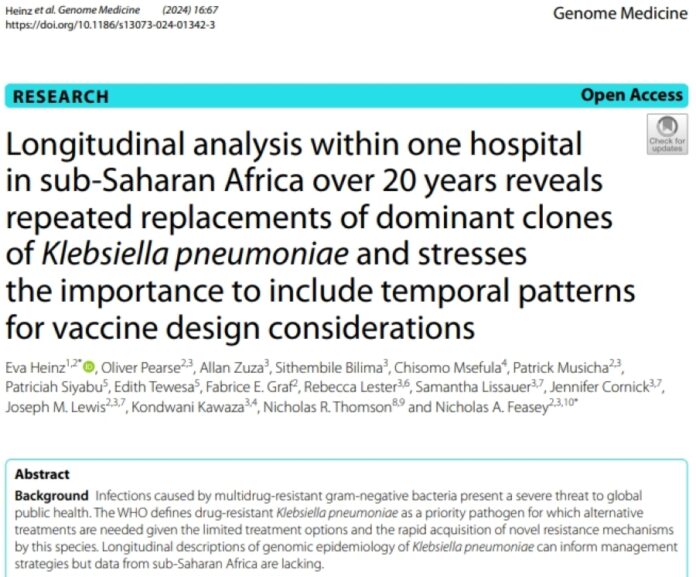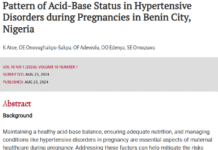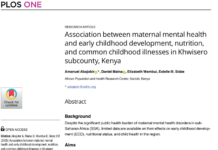August 2024: Paper of the Month by Heinz, et al.., 2024-Longitudinal Study Reveals Alarming Rise in Klebsiella Pneumoniae Infections and Antimicrobial Resistance in Sub-Saharan Africa: Key Insights for Vaccine Development and Hospital Infection Control
A recent study by Heinz, et al. (2024) titled “Longitudinal analysis within one hospital in sub-Saharan Africa over 20 years reveals repeated replacements of dominant clones of Klebsiella pneumoniae and stresses the importance to include temporal patterns for vaccine design considerations” published in Genome Medicine by springer Link, examines that there was a dramatic rise in Klebsiella pneumoniae infections from 2016, particularly among neonates.
“
There is dramatic rise in Klebsiella pneumoniae infections, driven by hospital-associated clonal expansions and increasing antimicrobial resistance.– Heinz, et al. 2024
The study by Heinz et al. provides an in-depth longitudinal analysis of Klebsiella pneumoniae infections at a hospital in Blantyre, Malawi, spanning a period of 20 years. The research reveals a significant rise in the incidence of infections, particularly among neonates, starting from 2016. This increase in cases is linked to repeated waves of clonal expansion of different K. pneumoniae lineages, indicating a pattern of hospital-associated transmission. The study’s findings underscore the critical role of hospital environments in the spread of these infections. A key aspect of the study is the identification of temporal trends in antibiotic resistance and the variability of surface antigens in K. pneumoniae. These trends are vital for informing vaccine development, as understanding the shifting landscape of resistance and antigenic diversity can guide the design of more effective vaccines. The research highlights the importance of continuously monitoring these trends to stay ahead of evolving bacterial strains.
How the study was conducted
The authors employed blood and cerebrospinal fluid (CSF) samples from patients with suspected sepsis or meningitis at Queen Elizabeth Central Hospital (QECH) in Blantyre, Malawi, from 1998 to 2020. Blood cultures were processed using the BacT/Alert system, and antimicrobial susceptibility testing was performed using the disc diffusion method. DNA from Klebsiella pneumoniae isolates was sequenced using the Illumina HiSeq X10 instrument. Quality control included species confirmation and contamination checks. Comparative analyses were performed using various bioinformatics tools to assess resistance genes, sequence types, and phylogenetic relationships.
What the authors found
The authors found that there was a dramatic rise in Klebsiella pneumoniae infections in 2016, particularly among neonates. The authors also found a clonal expansion increase. The increase was driven by repeated waves of clonal expansion, suggesting hospital-associated transmission. The study also posit that there was a significant rise in resistance to third-generation cephalosporins, making infections harder to treat.
Why is this important?
Rising Infections: The significant increase in Klebsiella pneumoniae infections, especially among vulnerable populations like neonates, highlights an urgent public health issue.
Hospital-Associated Transmission: The identification of clonal expansions suggests that the infections are spreading within the hospital, indicating a need for better infection control practices.
Antimicrobial Resistance: The rise in resistance to third-generation cephalosporins makes these infections more difficult to treat, underscoring the need for new treatment strategies and antibiotics.
Vaccine Development: Understanding the genetic makeup and resistance patterns of the bacteria can inform the development of effective vaccines, which could prevent future infections.
Infection Prevention and Control (IPC): The study emphasizes the importance of IPC measures to reduce healthcare-associated infections, which can save lives and reduce healthcare costs.
What the authors recommended
- The authors advocate implementing stricter infection prevention and control (IPC) measures in hospitals to reduce the spread of Klebsiella pneumoniae.
- The study emphasizes establishing robust surveillance systems to monitor the incidence and spread of infections, particularly in neonatal units.
- The authors advocate promoting the judicious use of antibiotics to combat the rise in antimicrobial resistance.
- In addition, the authors suggest formulating and enforcing public health policies that address the prevention and control of healthcare-associated infections.
The study by Heinz et al. serves as a critical reminder of the evolving threat posed by Klebsiella pneumoniae in hospital settings, particularly among neonates. The findings highlight the urgent need for enhanced infection control measures, vigilant monitoring of resistance patterns, and the development of targeted vaccines. By addressing these challenges, healthcare systems can better protect vulnerable populations and curb the spread of these life-threatening infections.

















 The African Research (AR) Index is a comprehensive scholarly directory and database focused explicitly on journal publishers that publish and disseminate African research.
The African Research (AR) Index is a comprehensive scholarly directory and database focused explicitly on journal publishers that publish and disseminate African research.

